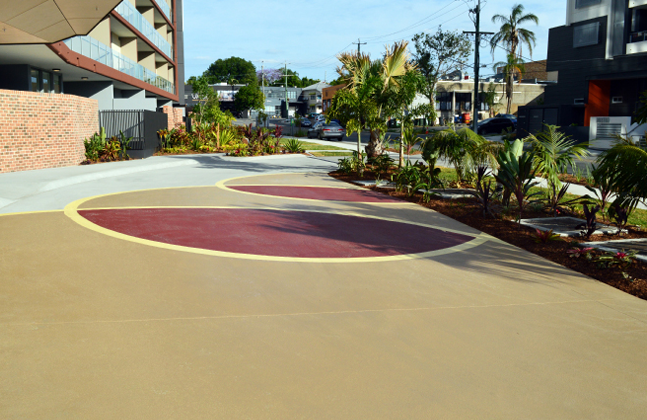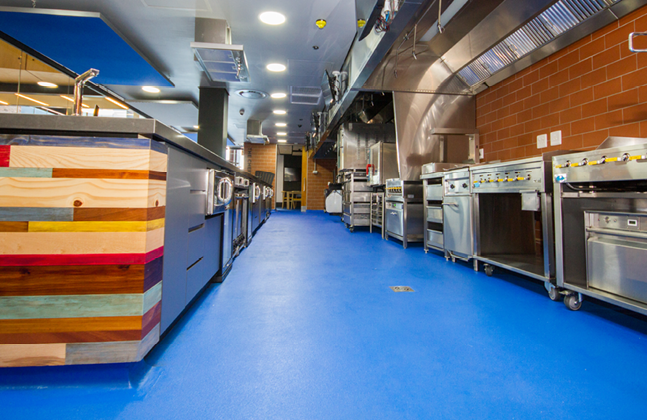Hot or cold, temperature plays an important part in the successful application of resin-based flooring materials. I chatted with Flowcrete Australia’s Victorian Sales Manager, Arthur Karayannis on how temperature affects resin flooring materials.
How can fluctuating temperatures affect the choice and application of resin based flooring materials?
In Australia temperatures often exceed 30°C, and this very much can affect the laying of a resin-based flooring system such as an Epoxy, Polyurethane Resin, Polyurethane Cement or Methyl Methacrylate flooring system.
According to Arthur, “The temperature across Australia can fluctuate greatly, from highs of 40°C to lows reaching minus zero. As a general rule, you should avoid installing resin-based flooring systems when temperatures are too high or too low.
The ambient temperature is important, however concrete slab temperature is also critical as temperatures generally affect the viscosity of the resin material (cooler = high viscosity, warmer = lower viscosity).”

I chatted with Arthur Karayannis, who explained how temperatures can have a significant affect on both the choice and installation of resin flooring materials.
Do you have to alter the installation to accommodate the heat? Is this where night installation comes into play?
“It is important to be aware of temperatures when planning work schedules, especially in the warmer Australian states. It is best to try and schedule application work for early mornings or night time when temperatures are lower as the slab will be cooler. Increases or decreases in temperature can affect both the work life and curing rates of resin-based products, so ensuring you understand the environment is essential to a successful application”

The temperature across Australia can fluctuate greatly, from highs of 40°C to lows reaching minus zero.
Are there any other factors to consider when it comes to high heat or humidity and does humidity play a factor during the installation of any of resin flooring systems?
“Yes, high humidity or more accurately an unfavourable ‘dew point’ can cause problems due to the accumulation of moisture on the surface you are coating, this can cause no end of problems. Most systems should be installed at 3°C above the dew point. A low temperature/high humidity environment can also cause blooming issues and direct heat during application of some systems can cause flash curing and potential delamination.”
Most Epoxies have an in-situ intermittent heat tolerance of 65°C – is this correct?
“Generally yes, however, this can be affected by thickness, aggregate type and quantity, whether the environment is dry or wet. There are many variables, which is why it is important to speak to an expert in the field and ensure the right type of resin technology is specified for your facility.”

Polyurethane flooring is recommended in kitchen and hot food processing areas as it has a very similar coefficient of thermal expansion (CTE) to concrete.
PU Cement can tolerate thermal fluctuations as it has a very similar coefficient of thermal expansion (CTE) to concrete – how do the other systems compare?
“Because of its similar composition, PU Cements do have a very similar CTE to concrete and this is very important when it comes to flooring specification and understanding different resin technologies. Epoxy resin-based flooring systems have a very different CTE to concrete, hence during temperature fluctuations, bond stresses can be created at the interface leading to dis-bondment.”





